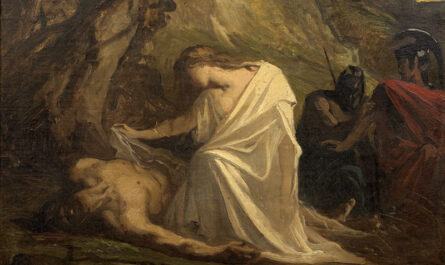Of Mice and Men. Fahrenheit 451. Fight Club. Cat’s Cradle. 1984. Animal Farm. The Handmaid’s Tale.
This list is not only some of the greatest literature ever committed to the page; each title has been repeatedly challenged in public schools and libraries. At this moment, some of these titles are banned in certain countries. All these titles were banned at one point by Western democracies, who claim to champion freedom. It is no mistake that great literature challenges our ideas of what is normal or acceptable. The greatest stories always pose a personal challenge to better ourselves.
This sabbatical week falls on Banned Book Week here in the States. Every September, the American Library Association (ALA) encourages readers to explore titles which have been banned, either historically or currently. My challenge to you is to read one of these provocative, “dangerous” books; books holding ideas someone thought were too heavy or delicate to discuss. Today we’ll look at why democratic societies should refrain from banning books, and why reading banned books is critical to sharpening and growing your mind.
On Democracy
Free thought is the foundation of democracy, and the only way societal, technological, or scientific progress is made. Society is improved by the repeated and rigorous testing of ideas and revision of methods. Far from attempting to regulate thought – a futile enterprise if there ever was one – a democracy must encourage her people to think critically. Sequestering or suppressing ideas is to torpedo this process of thinking. To encourage people to think well and critically, is to encourage them to take responsibility for their own choices and actions. When encouraged to think critically and creatively, people find ways to solve society’s problems.
Banning books is an attempt to stem the flow of free thought and sends the message that independent thinking is dangerous. Thus, banning books is irreconcilable with the spirit of a democratic society.
This week is dedicated to challenging your assumptions and testing your comfort zone. I challenge you to read a banned book; one which has literally been banned or a “banned book,” something off-limits because it was written by someone with whom you disagree. Either way, the ideas contained will prompt you to ask questions about your own perspectives, beliefs, and instincts, all of which are central to growing.
Reading a book doesn’t mean you agree with what it says. Reading is about discovering new ideas and viewpoints; it’s about learning. If you’re not encountering ideas which unsettle you or make you question your own understanding of an issue or conversation, you are slacking in your education.
To look through a banned book log is to see a comprehensive list of ideas a government, a school, or other group don’t want you to learn about. Books are banned when they disrupt a group – sometimes it’s as simple as swear words being in children’s books. However, other times it’s an ideology one group decides is unacceptable.
The book Fahrenheit 451 illustrates such thinking. Anyone who has read the book can tell you it’s about firemen who set fires to burn books. Who decided the books should be destroyed, though? The expectation is that a tyrannical government has outlawed reading. Nope, not this time. As Captain Beatty reveals to our protagonist, Guy Montag,
“It didn’t come from the government down. There was no dictum, no declaration, no censorship, to start with, no!”
It wasn’t an order handed down from a city leader or an organization at all – it was the people themselves. The people decided they wanted to do away with ideas anyone may find objectionable. They wanted to make everyone feel “equal,” and leave no room for disagreement. The people chose to do away with things that made them uncomfortable.
Sound familiar?
People will fight to restrict ideas which they find unsettling. People ban books containing ideas which make them afraid. Afraid of what? More often than not, perspectives or groups they would rather not discuss and ideas they would rather ignore.
Which brings us to the heart of the matter; it doesn’t matter whether a book is banned by a government if the people themselves refuse to listen to new or unpopular ideas. It comes down to individuals – you and me – deciding to explore new ideas and not retreat into our cozy knowledge bubbles.
Refusing to discuss an issue doesn’t make it disappear. Far short of improving things, it often makes the problem worse. The best way of handling controversial ideas is to discuss their merits and short-comings and make an informed, reasoned decision on the matter. To do this, though, we have to become familiar with the ideas in question.
Explore novel ideas, don’t attempt to extinguish them.
The preparation for challenging ideas is exposing yourself to foreign concepts and hearing from different perspectives. We don’t learn by ignoring opposing perspectives. We don’t learn without challenge. Nor do we learn by burying our heads in books we already agree with.
As Hellen Keller wrote to the Nazi student body in Germany burning books in the ramp up to World War Two:
“History has taught you nothing if you think you can kill ideas. Tyrants have tried to do that often before, and the ideas have risen up in their might and destroyed them.”
Banning books does not extinguish those ideas. It only removes the opportunity to learn about those ideas in a constructive manner. Censorship is an affront against learning, not a defense of wholesome education.
A novel perspective is an opportunity to learn. The notion of “protecting” people from certain ideas is misguided. We don’t need to hide ideas or perspectives from society. Instead we should discuss and examine these perspective, take this new information into account, and work to build a society we can all be proud of. When we notice ourselves having a strong emotional reaction against another person’s words or ideas, we must step back to examine our own thoughts and endeavor to understand where that emotion is coming from. Emotions don’t dictate truth. We discover truth through a process of much observation, questioning, and trial and error.
For example, what ideas do you reject without investigation? Where do you find yourself ignoring perspectives or ideas out of habit or impulse instead of reasoning through thoughtful consideration? Everyone is not going to agree on what is “age-appropriate,” or which ideas are “dangerous.” We must be able to think through why we reject arguments, conclusions, ideas and communicate those thoughts in an understandable manner. This takes discipline, patience, and work. It requires thinking deeply and valuing reason above temporary discomfort. It will grow your mind and your abilities to think, to reason, and to endure. Thoughtful reasoning makes us all better people.
This is why we read banned books – to educate ourselves. To shatter the bubble around you and face reality; to test your own assumptions, to learn from someone different than you. Ideas controversial enough to be banned are important enough pay attention to. Human rights, the well-being of children, education itself, slavery, the best method of government; all of these are themes in the most frequently challenged books and each is a massive, timeless topic still openly debated and studied. A banned book is like a star, its light steadily guiding you toward important, hotly contested ideas.
It is the mark of an educated mind not to seek to remove ideas from view, but to struggle with them, defend them, refute inaccuracies, and work toward considered, reasonable conclusions. The best minds work through various perspectives, they don’t dismiss viewpoints for being uncomfortable or foreign. This is why we study philosophy and logic. This is why we read widely, both fiction and non-fiction. We learn so we can build an ever more accurate understanding of the world and people around us. The point of life is not being comfortable. The point of life is to grow, which is necessarily uncomfortable.
How can we learn the most from banned books?
How, then, should we read banned books? Is a book true or promising simply because it’s been banned? Of course not; nothing is so easily determined. When we read banned books, we must pay particular attention to the imagery and the ideas the author was trying to convey. We need to ask questions. Why was the book banned? What ideas or imagery were people afraid of? What can we learn from knowing the reason for the ban? For example, a book banned for vulgar language may have fewer actionable ideas than a book banned for “anti-family sentiment.” What is a family, what does the book say about families, and why might a particular group oppose that message?
Consider the purpose the author was trying to accomplish. Why might they have used certain words or imagery? What is shocking or surprising about the book and why is it surprising? How does it help the story progress? What was the purpose of the story? What lessons did the characters learn along the way, and what did you learn from them? What does the book say about society and the individual? What responsibilities is the book calling attention to? Every question here may not apply to every text, but at least one of them does apply to every single literature title.
We should also consider society’s changing standards; what was controversial at the turn of the century is quaint by today’s standards. Many books drawing censors when they were published populate high school reading lists today. What do these sorts of changes say about society and the ideas or images we are willing to tolerate? What does a title being banned tell us about society at the time? How have attitudes changed since then? What is the message of the book, and does that message deserve a warning label?
Finally, we should use banned books to shine a light on our own blind spots. We all have them. We can greatly reduce them by exploring ideas outside our comfort zones. What ideas do particular groups prefer to ignore? What ideas do you prefer to ignore in your own life? Where do you find yourself dismissing ideas or perspectives without actually taking the time to understand them?
There is a certain instinct in all of us to shun or retreat from ideas which make us uncomfortable or upset us. That is part of being human, and it can often keep us from danger or pain. However, persevering and working through discomfort or difficult ideas is how we get stronger mentally, how we improve as individuals and as a society. We have to confront ideas, think through their merits, and approve or reject their conclusions. We must refuse complacency and use our minds.
If we want to advance, to find new ideas, solve new problems, or operate on a higher level, we have to do things which frighten and challenge us. We have to push beyond our limits. It’s the only way to grow.
Dive into a banned book. Explore new ideas. Challenge your assumptions. Widen your perspective. Get uncomfortable. Better yet, make this a part of your reading routine – get comfortable being uncomfortable.
Books are meant to be enjoyable yes, but the greatest books ever written are meant to challenge us and open our eyes to new perspectives. They are meant to nudge us out of our comfort zones and improve society (Oliver Twist), they are meant to stir up anger toward injustice (The Adventures of Huckleberry Finn, To Kill A Mockingbird), they are meant to prompt us to consider the wisdom of our decisions and think deeply about the kind of societies we want to build (1984, Fight Club, Brave New World), they are meant to make us think about thinking itself (Fahrenheit 451).





One thought on “You Should Go Read a Banned Book”
Comments are closed.